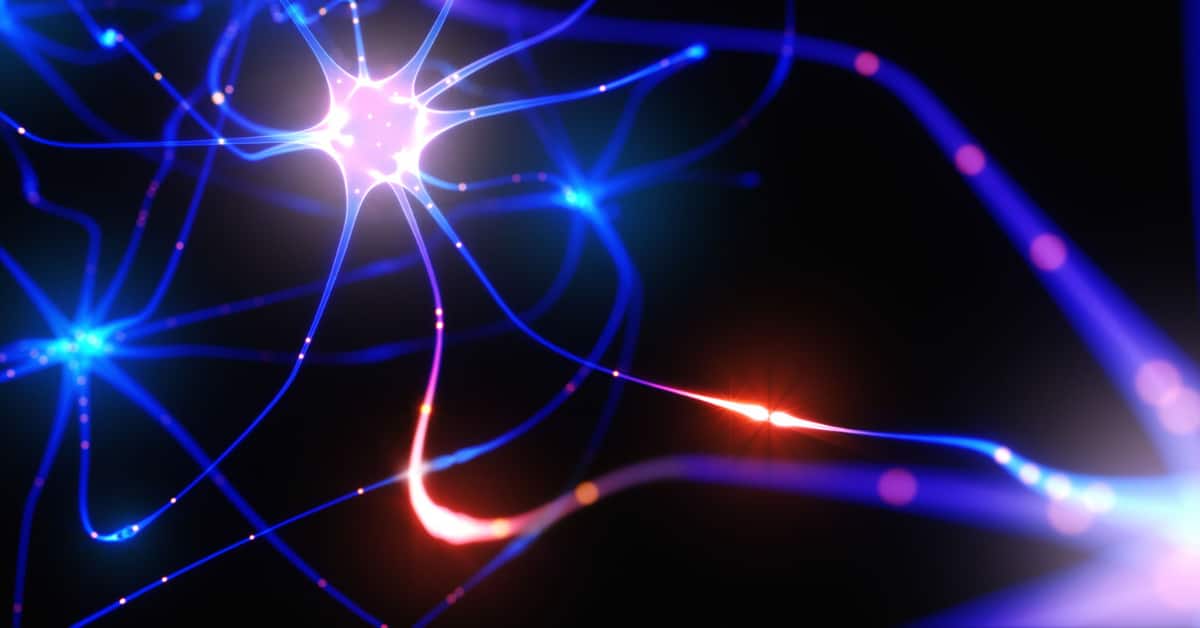ADHD in Adults: Neurodiversity Affirming Therapist for Adult ADHD

Therapist for Adult ADHD
Attention Deficit Hyperactivity Disorder
The 2023 CDC report on ADHD (attention deficit hyperactivity disorder) estimates that 5.5 million adults in the United States had a diagnosis of ADHD. Half of these adults were late-life diagnosed in adulthood (after the age of 18) rather than receiving their diagnosis as a child. With approximately 6% of the US adult population reporting an ADHD diagnosis, you're in good company with one in 16 adults who also have ADHD.
Since Covid there has been an increase in the number of ADHD diagnoses in the US. Requests for counseling and other treatments for adults with ADHD have followed suit.
In the past, ADHD in children in children was recognized, but parents were told their children would grow out of the diagnosis. Now, studies show that over half of all children diagnosed in childhood have symptoms that carry through to adulthood. It isn't surprising adults are diagnosed with ADHD after realizing they are not functioning at their best and look for answers.
ADHD counseling for adults has become much more common. The number of adults diagnosed with attention-deficit/hyperactivity disorder (ADHD) has been increasing for several years. The increase in ADHD diagnoses of adults has created a greater need for neurodiversity-affirming therapists to work with adults online. If you are an adult with ADHD, a shortage of therapists who understand ADHD can make it difficult to find ADHD therapy for adults.
Redifining ADHD As A Brain Difference
Now that ADHD is defined by neurological differencees, an ADHD diagnosis has become more universally accepted. The fact that late-life diagnosis means you have been living with a difference in brain structure that causes you to function differently than others is not such a difficult things to accept. It can help you make sense of some of the things you've experienced in your life.
There are also different ways that ADHD presents in people who were assigned female at birth. The traditional assessment criteria were designed to fit the profile of little boys. Now we know that there are different types of ADHD symptoms and that they can show up differently in different people. Everyone has their own mix of neurodiverse ways of being.
Many people with ADHD find that their symptoms were overlooked by their pediatrician when they were younger, especially if they weren't hyperactive and unable to sit still for a medical exam. It is very common for women with ADHD to have been overlooked in childhood.
Currently, the diagnosis of ADHD requires the onset of symptoms in childhood before the age of twelve. Some women did not show symptoms as a child. Symptoms like a racing mind are often masked and only become apparent in adulthood. There is some research looking into the possibility of adult-onset ADHD.
Attention deficit hyperactivity disorder is currently known as a lifelong neurodevelopmental disorder. Neurological differences lead to differences in brain function related to pleasure and reward. It's not really a blanket deficit in the ability to pay attention. It's better to describe it as an inability to discern where to focus attention and difficulty controlling where you direct your attention. The ADHD brain has a different idea of what is important to notice. It can often opt for what is more interesting.
The hyperactivity piece can be confusing and doesn't require physical activity. Internal hyperactivity can also be a symptom. It is common to see hyperactivity in thoughts, rather than body movements. The brain differences associated with symptoms of ADHD also impact executive functions essential in adult life. These are the higher thinking skills, such as planning, task management, cognitive inhibition, and working memory.
The latest thinking on classifying ADHD is that it would be better classified as a neurodivergent condition based on new evidence. ADHD therapy for adults needs to shift to account for this new understanding.

Therapy for Adult ADHD
We need to implement neurodiversity affirming therapy to create an accepting therapy environment. It's important for clients to feel safe and comfortable so they can make changes without fear of being judged or forced to behave in a way that doesn't fit with how they think, process, and identify.
Working with a licensed therapist can help you discretely get the support you need. Online therapy adds another layer of privacy to counseling to help you avoid stigma. You get to choose a location that is comfortable and meets your needs. If you are sensitive to lights or sound, you can chose an environment where you can control them. There's no need to worry about lighting your screen to be seen clearly. It's more important for you to be comfortable.
A neurodiversity affirming therapist for ADHD adults can help you find ways to function in different environments so you can be more comfortable as you go about your day. You can figure out how to be yourself and honor your differences.

Is ADHD Considered Neurodivergent?
Attention-deficit hyperactivity disorder has been considered a neurodevelopmental disorder for many years. However, growing evidence suggests that ADHD is more accurately described as a neurodivergent condition. Neurodiversity is an emerging field of study that that is getting a lot of attention.
There are several key differences between neurodevelopmental and neurodivergent conditions. Neurodevelopmental disorders are typically diagnosed in childhood, whereas neurodivergent conditions can occur at any age. People diagnosed with ADHD usually receive their diagnosis in childhood, but it is not always clear whether the symptoms are due to a developmental delay or a lifelong condition.
If you were missed or are wondering if the ADHD you were told you would grow out of when you became an adult is still there's the option to work with a neurodiversity affirming therapist for ADHD adults for an assessment and diagnosis. The process is often more neurodiversity-friendly than working with a therapist who is not up to date on neurodiversity.
A neurodiversity-affirming professional considers factors that are not included in the traditional standards for diagnosis in the Diagnostic and Statistical Manual (DSM). Including symptoms that are more common in those assigned female at birth can help when a past assessment didn't have enough information for a formal diagnosis.
Neurodevelopmental disorders are typically characterized by difficulties in social and communication skills, while differences in thinking and perception are often seen in neurodivergent conditions. While neurodivergent and neurodevelopmental conditions are not the same, they do share some similarities.
The overlap of symptoms leads many to ask, "is ADHD considered neurodivergent?" In some cases, people with neurodivergent conditions may experience symptoms similar to those associated with neurodevelopmental disorders.
Neurodiversity is a term that has been around since the 1990s, but it took a while for people to understand how neurodivergent conditions differ from neurodevelopmental disorders. The neurodiversity movement has grown in popularity and is now used to describe the differences in people with autism, ADHD, dyslexia, and other neurological conditions.
The neurodiversity construct focuses on how neurodivergent people are just different from others rather than ill or defective. Neurodiversity affirming therapy embraces this concept.
Asking, "Are people with ADHD neurodivergent?" has recently become a more common question. There is growing evidence to suggest ADHD is better suited as a neurodivergent condition. The new studies show that it is not a disorder or a disease but rather a difference brain functions.
Researchers have found that ADHD symptoms result from differences in prefrontal cortex function. The prefrontal cortex regulates your behavior, attention, and emotion. Your prefrontal cortex and how it functions and communicates to the rest of your brain may explain symptoms such as impulsivity, difficulty making plans and following through, distractibility, forgetfulness, difficulty managing time, and hyperactivity.
ADHD tends to run in families, which suggests that it has a genetic component. It is also more common in males than females, which may be due to hormonal differences.
Brain imaging studies have shown that people with ADHD have different brain structure and function than those without ADHD. These differences include smaller brain structures in areas that play an essential part in maintaining focus and attention, reduced activity in the prefrontal cortex, and reduced connectivity between other regions of the brain.
Biological brain differences support the use of neurodiversity affirming therapy. If you work with a psychotherapist who understands neurodiverse brain differences, you can look at different ways to manage ADHD that fit with who you are. Many adults with ADHD prefer working with a therapist who is neurodiverse and understands what it's like to live with ADHD. Neurodiversity-affirming therapy is respectful and supportive.
Online ADHD therapy for adults allows you to meet in your own environment so you can tend to your personal needs while receiving professional help from a neurodiversity affirmative therapist.

Treatment for ADHD in adults:
Therapist for ADHD adult issues
Living with ADHD
When you live with attention-deficit/hyperactivity disorder, you experience life differently. The world around you seems to move at a different pace, and it can be hard to keep up. You may feel like you're always running late or the only one who doesn't know what's happening.
ADHD can make it difficult to focus on one task at a time. You may start projects but have trouble finishing them before getting pulled to a different project. Lack of focus can lead to feeling overwhelmed and stressed with lots of things started but nothing finished. You may also have trouble following through on commitments or keeping promises.
Creativity can overflow and ideas can come a mile a minute. You may try to hold ideas you like in your head, but when the next idea comes the first one gets bumped out of the way and disappears. No matter how much time you spend trying to remember it, there's no way to bring it back. All the lost ideas can feel like failures and make you feel like your missing out. The whole process can be overwhelming and make it difficult to decide which ideas you want to pursue and where to start.
Adults with ADHD struggle with different things in different environments. A neurodiversity affirming therapist can help you come up with your own customized strategies to deal with your racing thoughts, unfinished projects, and stay focused on the things you want to do. When solutions are based on your wants and needs, they are easier to incorporate into your life. Following through is more natural if the strategies fit who you are and how you think.
ADHD can impact your relationships. Listening to others or having conversations can be tricky because your mind is always racing and bouncing from subject to subject. It can be like living with a pinball machine in your head. Someone says something that may trigger a thought, and your mind runs with it. In the meantime, you miss part of the conversation. You may also seem disorganized or forgetful, which can frustrate your friends and family.
Online therapy for ADHD with neurodiversity affirming therapist can make it easier for you to get the help you need with all the distractions and time management issues that seem to get in the way of regularly scheduled appointments. With specialized therapy for ADHD adults, you don't have to think about traffic and parking, which adds time to the process of getting to your appointment. When you don't have to get to your appointment, it's easier to be successful logging in on time.
Teletherapy is easily accessible online using a private and secure HIPAA compliant platform to connect with a therapist for neurodiversity.

Treatment for ADHD in adults: The first line of treatment for ADHD
The first thing that generally comes to mind when thinking about treatments for adults with ADHD is medication. There are many options used to address ADHD. What works best for you depends on your biology, lifestyle, and your environment.
The CDC recommends parent training first for children with ADHD under six years old, followed by child behavior management. Medication is the third option. The standard recommendation for older children is to start parent training and therapy for the child simultaneously.
The standards for children and adults are a bit different. For adults, medications can help set the stage for therapy. It is a common of psychiatrists to recommend a patient with begin with medication and therapy together. However, many people are looking for adult help with ADHD without medication.
There is more than one treatment option. You treatment plan should be based on your needs and how medications and therapy work for you. There should be space to allow for changes in dosage or medications to dial in what works for you. It is also common for those with ADHD manage their symptoms with supplements, diet, and exercise with or without medications.
There is no one way to address symptoms of ADHD when working with adults. Treatment of ADHD with medication and without can be successful. In fact, adults with ADHD who participated in the COMPAS study received therapy and a placebo medication or actual medication alone showed improvement in both groups in a follow up a year and a half later. This shows that managing adult ADHD is individualized. Different protocols can be successful and help adults with ADHD manage symptoms.
Standard treatment for adults typically begins right away with a combination of psychotherapy, medication, and education. Clients often tell me they have tried several different medications and found the side effects interfered with their life more than they helped. I've also had clients who are extremely happy with their medication and use it as a foundational tool for coping strategies. It is a very individual choice.
There are several medications used to treat ADHD. Response to treatment varies from person to person. Everyone reacts differently to different medications. Finding one that works well with your body's chemistry and lifestyle can be a long process.
Medications for ADHD can also have different benefits for different people. Your experience can vary depending on your dosage and timing of your medication. Medication isn't the only option for ADHD.
Thinking about therapy for
adult ADHD
Some practitioners don't like to provide support for adults who want to address ADHD symptoms without medication, so be sure to ask when you are interviewing therapists. You want a practitioner who is aligned with your values
Clients often tell me they have worked with several different therapists and have gotten nowhere. The most common type of therapy doctors recommend to adult patients are cognitive-behavioral therapy (CBT) and dialectical behavioral therapy (DBT). These forms of ADHD therapy are structured, manualized therapies that use behavioral techniques. These behavioral therapies have been used as treatment of adult ADHD in the past, but they are less accepted today.
Clients have told me that they feel frustrated with these modalities. They often complain that they feel disrespected and don't like the prescriptive nature of this kind of treatment. Some even say cognitive behavioral therapy for adult ADHD made them angry.
Behavioral approaches to attention-deficit/hyperactivity disorder do not fit with the neurodivergent affirming view. Instead, we look at reasons for behaviors that cause difficulty in social situations. We find ways to honor your experience and pay attention to sensory issues, distractions, and barriers to find solutions that meet your needs.
Diagnosis and treatment don't have to follow the same standardized protocols. Diagnosing ADHD requires specific questions and criteria to fit with the DSM to identify adults with attention deficit hyperactivity. Talk therapy can be less structured and designed to meet your particular needs.
Therapy is not meant to "fix" or "cure." The purpose is to help you live more comfortably without conforming to ableist norms. It is possible to find adult ADHD help without medication. Managing symptoms of adult ADHD doesn't have to go against who you are.

ADHD Therapy Online: California, Nevada and Florida
You don't have to conform to societal pressures.
Neurodivergence comes with strengths and different perspectives that have value. The typical social view believes anyone who veers from the "norm" is “impaired” and should be steered as close to the "norm" as possible, no matter how much stress it puts a person through. Neurodivergence is not an "impairment" or "reduced function." It is a neurological difference.
Your neurodiversity affirming therapist can help you find ways to see yourself in a positive light. When you figure out how your differences can work for you, everything starts to look better. Accepting yourself and how your brain works can help you feel more comfortable in your own skin.
You don't have to transform yourself into what society wants you to be. Instead, you can focus your transformation on what you want for your life and the version of yourself you are comfortable being. Neurodiversity-affirming therapy can help you with your vision for transformation.
Trying to fit yourself into the "box" society created for you can lead to some pretty uncomfortable feelings.
Working to be someone you're not can cause:
stress
burnout
exhaustion
anxiety
depression
seclusion
self-doubt
sensitivity to criticism
excessive self-criticism
reduced overall well-being
low self-esteem and self-worth
intrusive suicidal thoughts
A neurodiversity-affirming therapist will never try to get you to conform to pressures that encourage you to be something other than yourself. You can receive therapeutic support online from the comfort of home with a therapist for neurodiversity.
There is no need to travel or adjust to a new environment when you choose to participate in adhd therapy for adults online.

Neurodiversity affirming treatment for ADHD: Treatment for ADHD in Adults
The neurodiversity viewpoint is an alternative to the standard medical model. From a neurodiversity-affirming perspective, people with ADHD have value, deserve respect, and we celebrate their unique qualities and insights. Your ADHD brain is a natural variation rather than a disorder that needs to be treated or cured. You are not broken or defective. You are a unique human.
The neurodiversity-affirming approach to treatment for ADHD in adults is about learning to live a quality life with ADHD. It starts with the belief that everyone has different strengths and weaknesses and that we all need to find our own way of coping with and succeeding in the world.
People with ADHD are often very creative and intelligent. Neurodiversity-affirming therapy can help you harness your unique strengths. Working with a neurodiversity-affirming therapist can be beneficial for those who have tried traditional psychotherapy, and it fell short or they did not experience benefits.
As a member of the ADHD community, I know that each of us has a unique patchwork of symptoms and strengths. Neurodiversity can impact the kind of attention and care needed in a therapy setting.
Traditional therapy settings don't always recognize special needs that can come with neurological differences. They may see you and your differences as something to fix rather than something to accommodate.
You may find that certain environments, situations, and tasks are more difficult to handle. Some challenges you may experience are:
- anxiety
- depression
- limited social skills
- difficulty focusing
- lack of self-discipline
- struggles to organize tasks
- issues with executive functioning
- inflexible with plans and thought processes

- anxiety
- depression
- limited social skills
- difficulty focusing
- lack of self-discipline
- struggling to organize tasks
- issues with executive functioning
- not being flexible with plans and thought processes
ADHD treatment for adults online can support you through your challenges and help you find solutions that work for you while you maintain your sense of self.
Googling "therapy for ADHD adults in California" or "ADHD therapy online California" can help you find a therapist therapist specializing in adult ADHD and will return more results than searching locally. When you look at the results, keep an eye out for a therapist for neurodiversity well versed in the neurodiversity affirming approach.

finding a neurodiversity-affirming therapist
Meeting with an adult ADHD therapist online can support you through your challenges and help you find solutions that work while you maintain your sense of self.
Googling "therapy for ADHD adults in California" or "ADHD therapy online California" can help you find a therapist therapist specializing in adult ADHD and will return more results than searching locally. When you look at search results, keep an eye out for a therapist well versed in the neurodiversity-affirming approach.
Finding a neurodiversity-affirming therapist:
ADHD Therapy for Adults
Working with neurodiverse brains is a specialty.

It can be challenging for those who don't live with neurodiversity to understand all the nuances it introduces into life. Most professionals think about medications and medication management when they think about neurodiversity. Working with a therapist specializing in adult ADHD can make a big difference in your therapy experience.

As a neurodiversity affirming therapist, I work differently. While I don't ignore the benefits of ADHD medications, I don't require clients to start using them to begin therapy. You can get ADHD therapy for adults without starting medication.

No matter what your goals for therapy are, I will work to understand your unique neurodiversity and how it may impact your daily life. We can focus on your relationships, issues at work or school, self-care, and how you see yourself or find strategies to improve your life. Anything goes. Therapy can be highly beneficial in becoming the best version of yourself and living happily with your neurodiverse brain.

Working with a neurodiversity-affirming therapist: What to expect
We will begin by discussing what you want to get out of therapy. You can tell me why you decided therapy would be a good idea. When we know your best hopes, we can focus on the specific things you want to address. You can let me know what kind of relationship will work best for you and what you expect from me.
I find that neurodiversity lends itself well to finding solutions by looking at different perspectives, ideas, and options. Together we can find solutions to challenging problems.
You can "try on" several solutions to see what fits you best and helps you manage difficult situations. I always work from a trauma-informed stance.
It isn't easy to decide to reach out for professional help. It might be helpful to know you can get neurodiversity-affirming treatment for ADHD in adults online. Many people find meeting online more comfortable than meeting in an office setting. When you meet online, you choose the environment, not your counselor. Online ADHD therapy for adults gives you options that are not available in a counseling office.
Before we begin, I want to ensure I'm the right therapist for you. That's why I offer a free 15-minute consultation for us to meet before you decide. You will have a chance to ask me anything that will help you make a decision. I want you to be comfortable working with me. Studies show that the therapeutic relationship is the most critical component of successful psychotherapy. For therapy to work for you, you must be comfortable.
When I provide ADHD therapy for adults, I want my clients to feel excepted and comfortable.

Online ADHD Treatment California, Florida, and Nevada:
ADHD Treatment for Adults Online
There are many options for addressing ADHD in adults, but not all are convenient or accessible. Online therapy is an excellent option for people who want to get help for their ADHD but can't make it to traditional therapy sessions. By choosing ADHD therapy online, California residents can receive professional treatment at home.
Here are some things to know about online therapy for ADHD.
Online therapy is a convenient option for busy people. You can schedule sessions around your work and other commitments, and you don't have to worry about getting to and from appointments. You can set up a time that works best for you to talk on the phone or schedule online video sessions. Online therapy is ideal if you travel frequently, if your work hours are crazy or if you just don't have the time to make it to regular therapy appointments. I can meet with you when you're anywhere within the states I'm licensed: California, Nevada, or Florida.
Choosing ADHD online therapy also helps you find a therapist with experience working with ADHD using a neurodiversity-affermative lens. Searching for a virtual therapist who supports ADHD gives you a wider search area.
It may feel natural to begin your search with "therapist for ADHD adult," but that may not yield the best results. It will most likely show results from many different states. When you search your state for "online adhd therapy california" your chances of finding a therapist specializing in ADHD adults increases.
If you are in California, you can work with anyone licensed in the state of California. State licensing rules prohibit licensed mental health professionals from practicing across state lines without obtaining a license in another state. There is no federal licensing for mental health professionals.
I am a Marriage and Family Therapist licensed in:
California
Florida
Nevada
Treatment of ADHD in adults online can be just as effective as in-person therapy. One study found that people who received therapy for their ADHD online had better outcomes than those in the control group who didn't receive any interventions.

Frequently Asked Questions
FAQs About Adult ADHD
As more adults recognize the impact ADHD has on their daily lives, the demand for specialized ADHD therapy has grown. Here I will answer some common questions people ask about therapy for ADHD adults. I hope you find them helpful.
If you have any additional questions or would like some clarification, please schedule a free consultation. I would love to meet you and have a chat!
What is the best treatment for adult ADHD?
A combination of medication and psychotherapy are usually recommended. Just taking a pill is not enough. Changes in lifestyle, how you think about yourself, and how you manage your day are vital elements that will help you do the things that are important to you. ADHD therapy for adults focuses on what you need and how to accommodate your needs so you have the energy to do the things you want to do.
How can marriage and family therapy help adults with ADHD?
Marriage and family therapy can help you improve your relationships. You can learn different ways to communicate to friends, family and coworkers. You can increase your understanding of others and strengthen bonds.
It helps to address relationship challenges with ADHD symptoms at the center. The more you communicate your needs, the easier it is for others to respond in a way you understand. Clear communication creates a supportive environment where everyone can learn effective coping strategies.
What role do ADHD therapists play in managing adult ADHD?
Therapists who specialize in ADHD and neurodiversity offer support and insight to clients. You set the tone for your sessions. You can work on goals, communication, develop organizational skills, and design strategies to manage your symptoms. Your therapist will work with you collaboratively to create a plan that addresses your specific challenges.
Can anxiety disorders be treated alongside adult ADHD?
Yes, treating anxiety disorders alongside adult ADHD is essential. Anxiety commonly co-occur with ADHD. Since anxiety tends to interact with ADHD it is natural to address both together. When you make changes for anxiety, they often have a positive impact on ADHD symptoms and vice-versa.
What are the common symptoms of ADHD in adults?
Symptoms of ADHD are often hidden in adults. Coping mechanisms and compensation can cover up symptoms on the outside, but they still exist on the inside.
ADHD Adult Symptoms Include:
fidgeting
impulsivity
hyperfocus
restlessness
interrupting
a busy mind
forgetfulness
mood swings
low self-esteem
excessive talking
easily distracted
misplacing items
relationship issues
unfinished projects
organization issues
imposter syndrome
difficulty concentrating
difficulty switching tasks
difficulty tolerating frustration
spending on unnecessary items
being late or losing track of time
difficulty adapting to changes in routine
strongly personalize rejection or criticism
making decisions without considering options
overwhelm caused by certain environments or sensory inputs
ADHD symptoms in adults can have a significant impact on daily functioning, making effective coping mechanisms, and managing life. ADHD therapy for adults can help you figure out what works best for you.
How effective is psychotherapy for treating adult ADHD?
Psychotherapy is shown to be effective in improving the quality of life in ADHD adults. It provides support with building coping strategies to manage symptoms, helps you create routines that improve organization, and address emotions brought on by symptoms.
What are treatment option for adults living with ADHD?
The most effective and common treatment options for ADHD in adults include:
medication
psychotherapy
lifestyle changes
personalized strategies
adopting a pacing mindset
calming the central nervous system
accommodations in work and education environments
Combining individualized approaches can help you manage symptoms and improve your quality of life.
What is the importance of diagnosing and treating ADHD in adults?
Diagnosing and addressing ADHD symptoms in adults boosts mental health. When people understand their brain differences and how difficult it is to live in a world that's not designed for them, it takes the pressure off. There is less need to push through and conform.
Finding supports and coping skills that work is crucial for improving functioning and quality of life. A treatment plan that address your specific symptoms helps you lead more productive and satisfying life.
